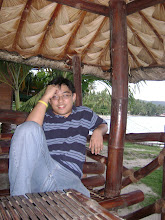The iSchools Project takes home the award for the Digital Inclusion category at the 3rd Government Technology Awards held at the Grand Hyatt Hotel in Bali, Indonesia last October 9, 2009.
The Government Technology Awards is the brainchild of FutureGov, the largest regional organization of government, education and healthcare officials in the Asia Pacific. The Awards seeks to recognize outstanding government modernization projects across Asia.
One of the twelve categories available, the Digital Inclusion award distinguishes “projects and programmes that use technology to bridge the digital divide.”
The iSchools Project is one of the flagship projects of the Commission on Information and Communications Technology (CICT), which aims to close the digital divide in public secondary education. With a budget of P350 million annually, the iSchools Project has delivered Internet laboratories to 680 schools and trained 12,400 teachers in internet literacy, making it the most comprehensive ICT-in-education initiative in the Philippines today.
iSchools Project Manager Antonette Torres believes that the effort to penetrate the underserved localities in far-flung public schools, the use of innovative adult-learning techniques and the emphasis on sustainability planning through community involvement were keys to the Project’s win.
To ensure sustainability, the iSchools Project mandates all recipient schools to attend a Regional Project Briefing, Community Mobilization, and a Sustainability Planning Workshop. Through this, school representatives would be able to articulate a concrete plan of action aimed at continuing their laboratory even after CICT’s withdrawal.
Torres further attributes success to the partnership between the CICT and State Universities and Colleges (SUCs).
She likens the nationwide implementation to a battlefield, with SUCs as the project’s “first line of defense and at the same time intelligence and field generals.”
“The SUCs played a very important role in the iSchools project. They assisted the CICT from coordination to monitoring; and in between of that continuum they served as lecturers, technical consultants, project coordinators and leaders.”
In taking home the Digital Inclusion category, Torres is generous in sharing the praise for everyone involved.
“This is not only a tribute to the Commission and the project team but also to the partners who have stayed with us through the years; our 37 SUC partners and all the supportive public schools who continue to work and believe in our aims.”
DCST mentors in Japan for IT Training
14 years ago


